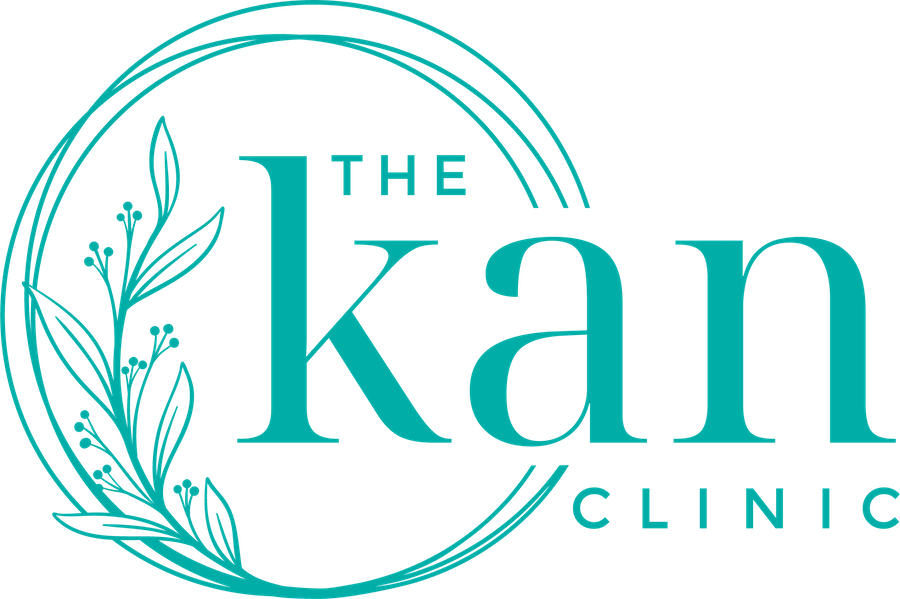Understanding the Menopausal Vagina
As women approach menopause, a myriad of changes occur within the body, and the vagina is no exception. These changes can significantly impact the vaginal microbiome, tissue integrity of the vagina, and overall physical and emotional/mental health. Patients and their lived experiences are often dismissed in this space as ‘just a natural part of ageing’, and consequently, their symptoms frequently go unreported, underdiagnosed, and mistreated. In this post, we will explore how menopause affects the vaginal environment, the subsequent risks for infection and disease, and how naturopathy can support patients both physically and emotionally.
The Vaginal Microbiome: Shifts During Menopause
The vaginal microbiome plays a crucial role in maintaining vaginal health. During the reproductive years, the predominant bacteria in the vagina are generally Lactobacilli. These beneficial bacteria help maintain an acidic pH within the vagina, making it a hostile environment to many potentially harmful pathogens. However as the transition towards menopause approaches, known as perimenopause, natural hormonal fluctuations occur which can have an impact on the vaginal microbiome.
In some phases of perimenopause oestrogen is elevated, and this enviroment can favour vulvovaginal candidiasis-causing microbes, due to an increase in glycogen - a sugar produced by vaginal epithelial cells which has a very close relationship to oestrogen levels.
Inversely, the decline in oestrogen levels associated with menopause can also lead to significant changes in the vaginal microbiome. The decrease in oestrogen and resulting reduction in glycogen production by vaginal epithelial cells causes a decrease in Lactobacilli, whereby glycogen is a key nutrient for these bacteria.
This results in:
Increased Vaginal pH which may rise over 4.5, creating a more favourable environment for pathogenic bacteria and yeast.
Reduced Lactobacilli which causes the protective acidic barrier to diminish, allowing potentially harmful microorganisms to proliferate.
Changes in Vaginal Tissue: The Impact of Oestrogen Decline
Oestrogen is also vital for maintaining the thickness, elasticity, and lubrication of vaginal tissues. When oestrogen levels drop during menopause, several changes occur:
Thinning of Vaginal Epithelium: the vaginal lining becomes thinner and more fragile, a condition known as vaginal atrophy or atrophic vaginitis
Decreased Lubrication: reduced oestrogen results in decreased vaginal lubrication, leading to dryness and discomfort.
Loss of Elasticity: the vaginal tissue becomes less elastic, which can cause pain during intercourse or masturbation, and other physical activities.
These changes not only affect comfort and sexual health but also increase susceptibility to infections.
Genitourinary Syndrome of Menopause
Genitourinary Syndrome of Menopause (GSM) is a term that encompasses the various symptoms and external changes that occur in the genital and urinary systems in response to reduced oestrogen levels. The condition impacts roughly 50% of menopausal people, and is progressive - it does not resolve over time. Aside from its impact on quality of life, social aspects, and sexual activity, GSM includes often includes vulvovaginal and urinary pain and discomfort, increased susceptibility to infection, and a decline in overall vaginal functionality.
Increased Risk of Infections and Diseases
The combination of an altered microbiome and changes in vaginal tissue structure heightens the risk of various infections and diseases. With fewer Lactobacilli and a higher vaginal pH, there is an increased risk of genitourinary infections like bacterial vaginosis. These microbial changes can also increase susceptibility to other infections like vulvovaginal candidiasis and sexually transmitted infections. Additionally, the thinner, more fragile vaginal tissue in combination with the altered microbial composition of the vagina can contribute to a higher incidence of urinary tract infections.
Strategies for Maintaining Vaginal Health During Menopause
Maintaining vaginal health during menopause is crucial for preventing infections and ensuring overall wellbeing, and often co-managing patients alongside other practitioners - like doctors, specialists, sexologists, and pelvic floor physiotherapists - is an ideal option. Naturopathically, some tools we often reach for to support patients in this space include:
Vaginal moisturisers, creams, pessaries, and lubricants: whilst there are a host of commercially available products we can safely recommend, we also have the means to create bespoke herbal based creams and pessaries with soothing and supportive herbs and nutrients - such as fennel, vitamin E, zinc, and sea buckthorn oil - to support vaginal tissue health, reduce inflammation, and support the vaginal microbiome.
Probiotics: some research suggests that certain targeted probiotics can help to prevent symptoms associated with vaginal atrophy, promote vaginal lubrication, and support microbial colonies within the vagina.
Hormonal support: there are a wide array of herbs, nutrients, and dietary interventions - including linseeds, black cohosh, red clover, and DIM - that can be utilised to support hormonal aspects, including the natural transition into menopause.
Addressing infection: with appropriate microbiome mapping to identify microbes at play, and targeted therapies, naturopathy can safely address various infections, and help to restore various aspects of vaginal health.
Lifestyle interventions: these can be strategies to promote comfort such as cooling packs applied to the vulva, and tools and advice to help manage the day to day impacts.
Supporting the nervous system: it’s no secret that the physical changes and their subsequent symptoms associated with menopause can take a great toll on patients, and it’s important to nourish their nervous system. Here, we can employ herbs, nutrients, lifestyle interventions and practices, and refer on as needed.
Menopause brings significant changes to the vaginal environment, affecting the microbiome, tissue structure, and increasing the risk of infections. By understanding these changes, creating a space for patients to discuss their experiences, and taking proactive measures, patients can maintain vaginal health and enjoy a better quality of life during and after the menopausal transition.
For personalised support and a dedicated naturopath to support you through these changes, book an appointment with our team below. We’re here to listen to you and help you achieve the best possible health as you journey through life and all of it’s stages!
Interested in More Tips and Naturopathic Insights?
Subscribe to our newsletter to receive expert advice, health tips, and updates directly to your inbox!

